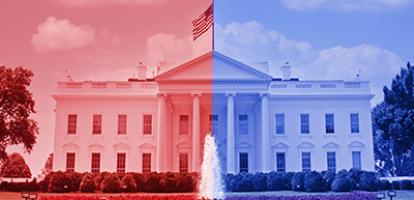From: Frank Swedlove
To: Financial Services Sector Stakeholders
Date: January 24, 2020
Re: CUSMA: What Does It Mean for Financial Services?
While certain areas of the new NAFTA agreement – autos, dairy and labour rights, in particular – have drawn attention, quiet changes in other areas have seen substantial rewrites from the original agreement.
Changes in the Financial Services chapter, for instance, provide necessary and useful refreshment to a document showing its age.
Canada’s main objective for financial services was to maintain the excellent access the sector’s companies enjoy throughout North America. This was achieved with minimal changes to the right to establish an entity, on national treatment (the right to treatment no less favourable than domestic firms), and on cross-border entry (the right to sell financial services without a physical establishment). The wording has been modernized, a task made easier by the fact that all three parties were involved in drafting language during the negotiations for the Trans-Pacific Partnership, even if the US subsequently did not sign on.
The changes seem to offer even more opportunities for access. There is detailed wording proscribing limitations on the number of institutions that can be established, the size of institutions, or the number of employees of a foreign institution. There are also commitments to allow cross-border provision of electronic payment services, such as Visa or MasterCard, as well as the wide array of portfolio management services.
Beyond access, there are three main changes of substance between the old and new chapters:
The first, and likely most significant from a business perspective, is a new provision relating to the location of computing facilities. CUSMA prohibits a government from requiring a company to locate computer facilities in its territory, so long as the regulatory authorities of that country have access to the information processed or stored on the computers. This means, for example, that a US company with a subsidiary in Canada could use US-located internal computers, its own or a contractor’s, to store and process the data related to Canadian clients. Use of the data would still be subject to national privacy laws. Similarly, a Canadian bank could use its computers in Toronto to service US clients. Or indeed, a financial service provider could use cloud storage facilities where it may be difficult to assign a geographic “location.” This provision is in direct contrast to present OSFI requirements, which mandate Canadian-located data. For this reason, the agreement gives Canada an extra year to comply with this provision.
The second area is related, and reflects the digital world that has emerged since NAFTA was negotiated in the mid-80s. CUSMA contains more detailed data-related sections. These include transparency in the licensing process, and an ability to transfer all information, not just for data-processing purposes, across borders. This will permit more “big data” opportunities.
The chapter also outlines the right for parties to take measures to deal with fraud or deceptive practices to protect consumers. As well, it encourages parties to develop regulatory procedures that would make it easier to offer insurance services in another CUSMA country.
The final major change is in the area of dispute settlement. The financial services chapter eliminates the 15-person roster to handle cases, which was rarely used.
However, the largest change is found outside the financial services chapter but also applies to financial services. Essentially with respect to Canada, after a transition period, an investor on its own will no longer be able to commence an action against another party. Under NAFTA, if an investor did not like a legitimate action taken by a Canadian regulator, it could argue it was being discriminated against because it was foreign. Under CUSMA, a foreign company would have to persuade its government to take an action against Canada, a far more onerous step. This will, in my view, eliminate any nuisance cases where the regulator has acted for legitimate prudential reasons, but the complaining financial institution is seeking a way out of the regulator’s decision.
Frank Swedlove, President of Swedlove Consulting Inc., was the lead negotiator for financial services in the original NAFTA agreement and is a Senior Fellow of the C.D. Howe Institute.
To send a comment or leave feedback, email us at blog@cdhowe.org.
The views expressed here are those of the author. The C.D. Howe Institute does not take corporate positions on policy matters.





